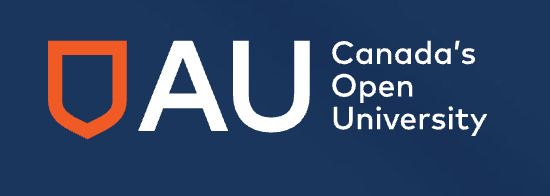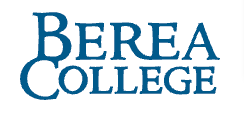It is well known that receiving a degree online or at a regular school is quite helpful. This is because it opens new doors globally and provides excellent employment prospects. As a result, regardless of their circumstances, everyone should attend a higher education school. However, obtaining a high-quality education is usually prohibitively expensive. Many people with varying obligations and objectives may find it difficult to attend and pay for college because they must pay tuition fees and other vital expenses such as housing, food, transportation, etc. As important as a degree is to most students, many frequently decide that the mountain of debt they will graduate with is not worth it, so they settle for less or, in the worst-case scenario, cannot follow their aspirations.
Fortunately, certain colleges and institutions provide student financial aid programs that cover up to 100 percent of tuition. These colleges (almost) pay students to attend their online programs. Even after graduation, one would not have to bear the numerous tuition debts. These schools not only alleviate the financial stress of paying for college without incurring debt, but they also provide students with income while they learn to ensure their future profession.

Table Of Contents
Can You Get Paid to Attend College?
People should recognize that higher education is essential and is a foundation for their future job. However, financing this education is becoming more difficult because of rising tuition and college costs. As a result, financial assistance is almost always required. To that end, some institutions “pay” their students to attend and enroll in their programs. Grants, scholarships, and financial aid compensate students at these colleges. This financial help is critical because it assists students and their families meet higher education costs.
How to Get Paid to Attend Online College?
Being paid to pursue higher education is indeed a strange concept. College attendance has become synonymous with student debt. However, students can look for ways and means to get paid to go to college, such as through:
- Corporate Tuition Reimbursement – Several employers offer tuition reimbursement as part of an employee’s benefits package, which they can use to pay for education. The refund or reimbursement policy for tuition is distinct and varies by company. Some firms pay for any program, while others only pay for studies related to their industry. In most cases, the amount of tuition costs that can be reimbursed each year is limited.
- College Financial Aid –Many institutions offer financial aid, which can sometimes pay the entire cost of attendance. Public college tuition is often modest and inexpensive; however, some private schools with higher tuition rates provide more considerable financial assistance. Students must fill out and submit the Free Application for Federal Student Aid or FAFSA to be eligible for need-based financial aid such as scholarships and grants.
- Merit and Minority Scholarships and Grants – Many online colleges offer scholarships to entice prospective students. Scholarships may also be given to athletes or students with exceptional abilities. Students from minority groups may also be eligible for college scholarships and grants. It should be noted that full scholarships (full-ride) are pretty rare. However, this form of support might help prospective students save significant money on college expenses.
What Are the Requirements to Apply to Online Colleges That Pay You to Attend?
The admission requirements for colleges that offer free tuition vary, although they are the same as regular colleges. The following are the general application requirements:
- Online Application & Application Fee – Completing an online application and paying the prescribed application fee.
- Academic Transcripts – An official copy of academic transcripts from each college/university attended.
- Grade Point Average – A Grade Point Average (GPA) of 2.8 or more.
- Graduate Record Examination (GRE) or Graduate Management Admission Test (GMAT) Scores – An official copy of GRE or GMAT scores no older than 5 years for graduate programs.
- Graduate Résumé or Curriculum Vitae – The latest résumé or CV that provides personal information and work experience, usually for Graduate programs.
- Personal Statement or Statement of Purpose – A personal statement or statement of purpose outlining how the program relates to the applicant’s career goals.
- Letters of Recommendation – At least two letters of recommendation from those who can thoroughly evaluate the applicant’s abilities at the graduate level.
- Proof of English Proficiency – TOEFL or IELTS scores or a document proving proficiency in English (if the native tongue is not or education was not in English).
Note: For further review, the college may administer an internal test and conduct an online interview.
Online Colleges That Pay You to Attend
OMC teams have compiled a list of the 15 best institutions paying students to attend. Note that the list is ordered alphabetically and not by ranking:

Athabasca University (AU), a Canadian university and one of Alberta’s four comprehensive academic and research institutions, was the first Canadian institution to specialize in distance education when founded in 1970. Commonly known as Canada’s Open University, Athabasca University offers over 70 online undergraduate and graduate degrees, diplomas, certificate programs, and over 850 courses, providing learning alternatives tailored to students’ goals.
To help fund their online tuition fees, students can apply for scholarships and bursaries, as well as various applications, nominations, and student awards. Although annual rates vary greatly depending on the program, students outside Canada should expect to pay around $15,000 per year to attend classes online.
Location: 1 University Drive, Athabasca, AB T9S 3A3, Canada. Phone: 780.675.6366
Wrap up
Online colleges do not exactly pay students to attend; instead, they provide education at no cost or with scholarships, grants, and other financial aid options. Prospective students should see this as a win-win situation because they can pursue their preferred academic degree from the comfort of their homes without paying much or anything.

 Edited By
Edited By 











